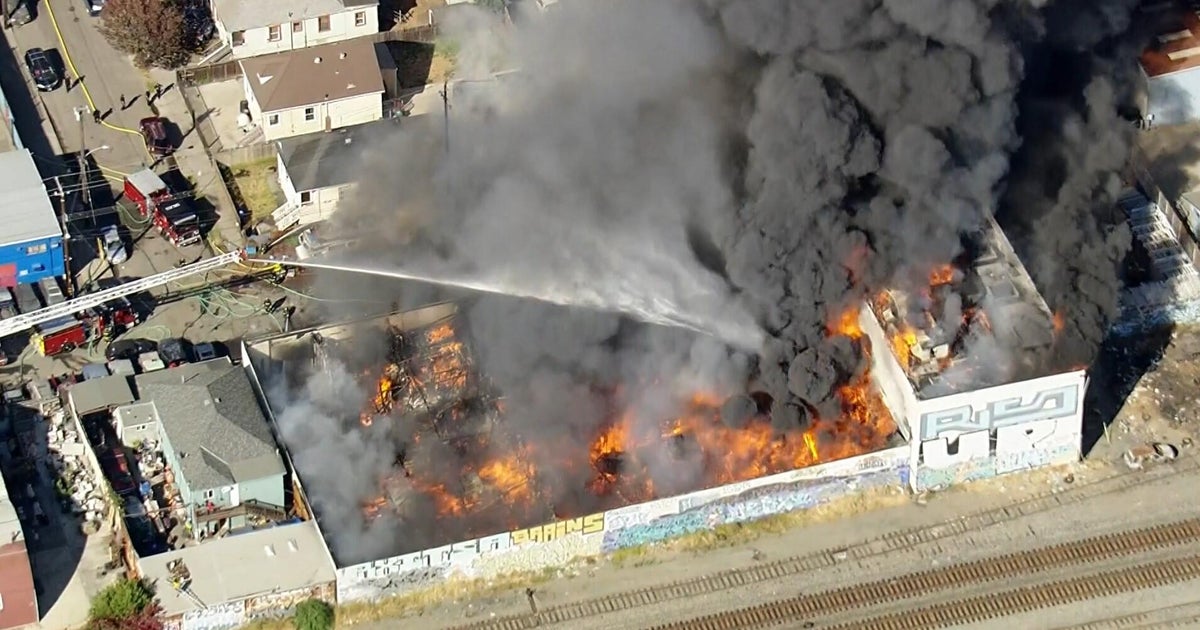UPDATE: Tahoe Flurries Ends Sierra's Record Lack Of Snowfall; 9 Inches Falls On Mt. Rose
DONNER PASS (CBS SF) -- A weather system rolled into the Sierra Tuesday, dumping nearly 2 inches of snow and ending a record 37 consecutive days without precipitation during meteorological winter.
The researchers at the UC Berkeley Central Sierra Snow Lab, nestled in the mountains near the famed Donner Pass, posted a photo of the fresh snowfall and a sigh of relief on social media.
"1.6" of #snow overnight means that we have ended the longest streak of days without measurable precipitation at the lab!," the post read.
The quick-hitting storm dumped 9 inches of snow on the top of the Mount Rose ski resort with about 3 inches falling at South Lake Tahoe and at Homewood on Lake Tahoe's west shore.
And the storm may be arriving just in time. The recent dry, warm spell was creating havoc with the vital Sierra snowpack.
"What happens to the #snowpack when warm temperatures and melt take hold in the winter?," the researchers posted on Monday. "We've seen approximately 1.5" (~5%) of water loss from our snowpack at the lab in the last 7 days! The high temperature before the biggest drop, which occurred on Feb 9th, was 57°F!"
Mother Nature has taken the Sierra on a wild ride over the last three months. Andrew Schwartz, the lead scientist and station manager of the lab, talked with KPIX 5 earlier this month during the record dry spell.
"We are now at 33 days without any type of precipitation. And that's the longest in a winter period that we've ever gone here, going all the way back to 1970. And so, that is very concerning," Schwartz said.
In mid-December a series of storms swept though the mountains dumping snow measured in feet, not in inches. By Dec. 16, the 7-day total had reached more than 6 feet and flurries were still falling. The photo posted on social media by the UC lab staff was a wintry scene that brought joy and relief to Northern Californians mired in an extreme drought.
"We are now at 158% of average for snowfall for this time of year," the researchers happily posted.
Then came January.
"January had the 4th lowest snowfall and 5th lowest precip since 1971 at the lab," the researchers posted on Twitter. "Luckily, the water from those December storms is still in the #snowpack and we're at 112% of our median snow water equivalent. We need more to avoid falling below avg though!"
But the dry spell has continued into February. The monthly snowpack measurement on Feb. 1 by the state Department of Water Resources delivered the bad news for the region.
The amount of water in the Sierra Nevada mountain's snowpack was at 92% of what's normal for Feb. 1. In December, heavy rain and snow left the state with 160% of its average snow water content.
"That one dry month of January basically wiped out whatever head start we had as we head towards the end of winter," Sean de Guzman, manager of the department's snow surveys and water supply forecasting section.
Alvar Escriva-Bou, Senior Fellow with the Public Policy Institute of California's Water Policy Center, told KPIX 5 he wasn't surprised by the extreme precipitation variability. There are drier than average periods, and wetter than average periods.
"It totally fits the pattern. We are being less and less surprised from these climatic extremes. This is really kind of sad, and it puts a lot of stress and challenges in the ways that we manage our system," Escriva-Bou said. "What we are seeing is that we have the same amount on average, but the variability - both within a year, but also across years - is changing a lot."



